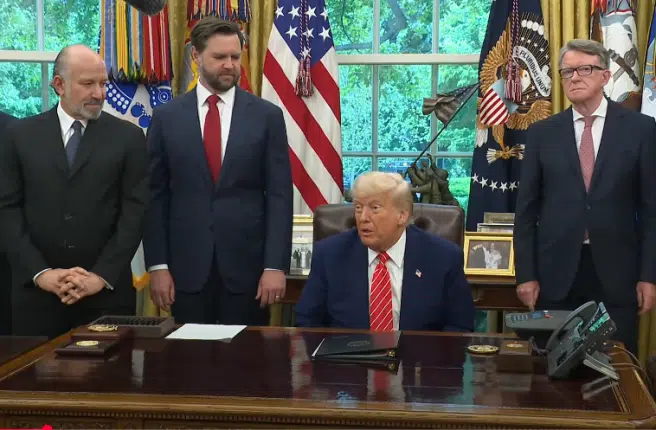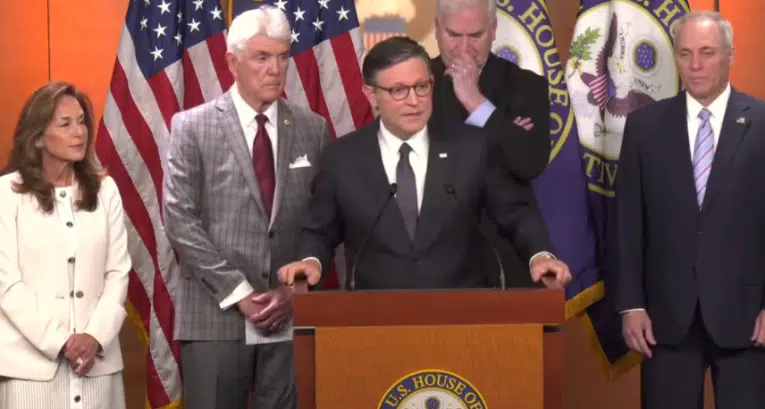By Bill Wilson –
When the 2012 Fiscal Year begins for most states on July 1st, they will face approximately $125 billion in budget shortfalls, according to the Center for Budget and Policy Priorities. The Center accounts for the shortfalls because of the sharp decline in tax collections, 12 percent less than pre-recession levels.
This does not quite tell the whole story. Deeper in the Center’s data, the upcoming year’s shortfalls can largely be attributed to federal “stimulus” monies running out. Whereas in FY 2011 states had $59 billion in bailouts to cope with $130 billion in shortfalls, now there will only be $6 billion left over to counter the $125 billion of deficits.
That means states have been able to put off some of the steepest cuts for over two years now because of the Obama Administration’s state bailouts. But the day of fiscal reckoning can no longer be postponed. With tax revenues, and thus the economy, still depressed, the states can no longer count on Congress to balance their budgets. Spending has to be cut.
One governor is rising to the challenge. Faced with a $3.6 billion deficit for FY 2012, Florida Governor Rick Scott has proposed sharp cuts to Medicaid and public pension reform that he says will save $3.4 billion every year.
Governor Scott’s Medicaid proposals include moving recipients into managed care plans that could save as much as $2 billion a year. It is something that other states should consider. Medicaid spending alone is set to jump dramatically as federal subsidies run out. Now, states are paying about $60 billion a year, but that number will jump to at least $83 billion in FY 2012.
If states cannot find a way to rein in health care spending, it will bury them over the next ten years as Medicaid expands to 133 percent of the poverty level under ObamaCare. And even if federal District Judge Roger Vinson’s ruling overturning the law is upheld, the budget picture faced by states will be daunting.
But, health care is just one of many empty promises that state governments have made. With as much as $3 trillion in unfunded state employee retirement liabilities, public pension reform is absolutely necessary.
Again, Governor Scott has a solution. He wants to put new government employees into a 401(k)-style retirement system and for all government employees to contribute 5 percent of their salaries to retirement. The governor says this will save another $1.4 billion every year, and give public employees a greater stake in the solvency of their retirement funds.
Critically, by enrolling all new government employees into defined contribution plans, Florida is limiting the universe of unfunded liabilities in the state’s pension system. Under the current system, retired government employees receive a defined benefit for as long as they live. The trouble with that system is that retirees draw more in benefits than they ever put in via contributions. Over time, they are becoming insolvent.
That is why phasing out and eventually eliminating defined benefit plans must be at the top of every state’s long-term fiscal planning.
But, Florida’s fiscal dilemma will not be resolved via spending cuts alone. The popping of the housing bubble hit that state harder than most, leaving a large surplus of homes for sale and in foreclosure. Also, 12 percent of Floridians remain unemployed, 3 points higher than the national average.
Again, Governor Scott delivers. As part of his plan to turn Florida around, he is proposing $2 billion in property and corporate tax cuts. These will make it easier for Florida to clear out its excess housing stock, and add new incentives for businesses to set up shop there. That will create jobs and give young families the confidence to make their first home purchases.
This is a model that states across the country can borrow from: Slashing Medicaid spending, reforming the public pension system, and reducing the tax burden. These will diminish the risk of default by states, especially for deeply-indebted states like New York, California, and Illinois, and create jobs for Americans who want nothing more than the dignity to provide for themselves.
Governor Scott will face more challenges in the coming days. It is highly likely that there will be more spending cuts needed to balance his state’s budget. But by taking on systemic reforms to entitlement programs like Medicaid and public pensions, he is tackling some of the most difficult problems first. And that is something lawmakers in Washington, D.C. ought to pay attention to.
Bill Wilson is the President of Americans for Limited Government.







